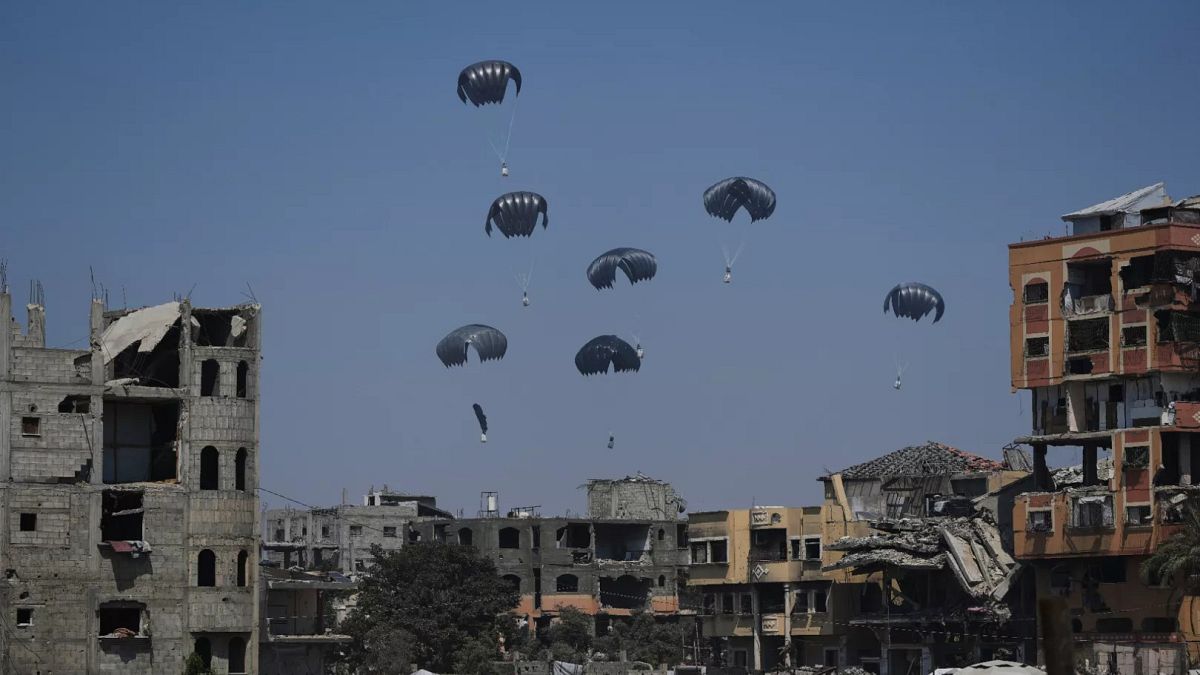

In recent days, the world has turned its attention to two critical regions where humanitarian efforts and political negotiations are making headlines. In the Middle East, the situation in Gaza remains tense but hopeful, as efforts to provide aid and establish peace are underway. Meanwhile, in Southeast Asia, Thailand and Cambodia are engaged in diplomacy to navigate their border dispute.
In the Gaza Strip, international efforts to alleviate a humanitarian crisis are gaining momentum. Amid a backdrop of conflict, the skies over Gaza have seen a flurry of activity, with Jordan leading a series of humanitarian aid airdrops in collaboration with the United Arab Emirates and other nations. This initiative aims to provide critical support to a population facing severe shortages of food and medical supplies.
The Israeli government has also taken steps to address the dire conditions by announcing plans to open humanitarian corridors. These corridors are intended to facilitate the flow of essential supplies into Gaza, with scheduled pauses in military operations allowing for the entry and distribution of aid. However, the situation remains precarious, with reports of ongoing tensions and sporadic violence along the borders, complicating these efforts.
On the diplomatic front, leaders from France, Germany, and the United Kingdom continue to press for a ceasefire. Their recent discussions highlighted the urgent need for de-escalation and focused on the importance of ongoing dialogue and cooperation with international partners.
In a related development, the UK Prime Minister, Keir Starmer, is actively involved in coordinating these humanitarian efforts. He has expressed his government’s commitment to working with partners to ensure aid reaches those in need. Amidst these efforts, diplomatic channels remain open, with continued dialogue encouraged to bring about a peaceful resolution to the conflict.
Shifting focus to Southeast Asia, Thailand and Cambodia are engaged in efforts to negotiate a ceasefire following recent border clashes. These tensions, rooted in historical disagreements, have resulted in significant casualties and displacement. However, there is a glimmer of hope as both countries prepare for talks mediated by Malaysia. This meeting represents a critical opportunity for dialogue and reconciliation, with the potential to ease hostilities and pave the way for a more stable coexistence.
The geopolitical backdrop of this conflict is shaped by deep-seated tensions, with the involvement of influential political figures adding complexity to an already challenging situation. Despite these challenges, diplomatic channels remain vital in seeking a resolution that respects the sovereignty and security of both nations.
As these regional developments unfold, the international community watches closely, emphasizing the importance of diplomatic engagement and humanitarian responsiveness. Efforts to provide aid and foster dialogue are crucial in addressing the immediate needs of affected populations and in promoting lasting peace and stability.
In these challenging times, the collaborative spirit of nations working together underscores the importance of collective action. From the skies of Gaza to the negotiating tables of Southeast Asia, hope remains a guiding force as the world endeavors to navigate these complex humanitarian and political landscapes. As always, the commitment to peace and human dignity remains at the forefront and offers a beacon of hope for those affected on the ground.
Source: {link}
